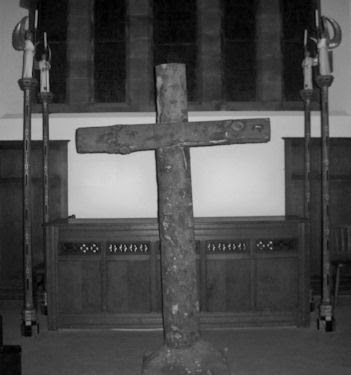21 After saying this Jesus was troubled in spirit, and declared, ‘Very truly, I tell you, one of you will betray me.’ 22The disciples looked at one another, uncertain of whom he was speaking. 23One of his disciples—the one whom Jesus loved—was reclining next to him; 24Simon Peter therefore motioned to him to ask Jesus of whom he was speaking. 25So while reclining next to Jesus, he asked him, ‘Lord, who is it?’ 26Jesus answered, ‘It is the one to whom I give this piece of bread when I have dipped it in the dish.’ So when he had dipped the piece of bread, he gave it to Judas son of Simon Iscariot.27After he received the piece of bread, Satan entered into him. Jesus said to him, ‘Do quickly what you are going to do.’ 28Now no one at the table knew why he said this to him. 29Some thought that, because Judas had the common purse, Jesus was telling him, ‘Buy what we need for the festival’; or, that he should give something to the poor. 30So, after receiving the piece of bread, he immediately went out. And it was night.
31 When he had gone out, Jesus said, ‘Now the Son of
Man has been glorified, and God has been glorified in him. 32If
God has been glorified in him, God will also glorify him in himself and will
glorify him at once.
On the 17th May 1966, Bob Dylan was performing at
the Free Trade Hall in Manchester. He had attracted some controversy, as he had
moved away from his acoustic folk origins to embrace electric instruments and
played an electric guitar himself. “Judas” shouts a voice from the audience in
between songs. “I don’t believe you….. you’re a liar” replies Dylan before
encouraging his band to play *expletive* loud.
Tragically, Judas Iscariot has been used in Christian
rhetoric to support antisemitism, focusing on him being a Jewish man held
responsible for Jesus’ death. (That makes the ‘Judas’ shout at the concert
especially barbed, as Dylan is also Jewish.) The truth – as ever with prejudice
and bigotry – is of course very different. Jesus and all of the disciples are
also Jews, as are the scribes, the Pharisees the priests, much of the early
church leadership, as well as the writers of the Gospels. Meanwhile, a Gentile
governor sentences Jesus to death, and Gentile soldiers execute him.
However, all good stories need a villain, and Judas does
more than enough to qualify for that role. John’s account of these events
describes him as essentially the group’s treasurer (adding the detail that
Judas stole from the purse for himself). As we heard on Monday, Judas is the
one who objected to the apparent waste of perfume used in anointing Jesus’ feet,
and today we heard that when Jesus gives Judas bread and he leaves, some
disciples assumed it was connected to his role as keeper of the common purse.
So, can we understand anything about this act of betrayal?
The accounts of Jesus’ life and ministry in the gospels give us a few clues.
Mark and Matthew say he was promised money, Matthew adding that 30 pieces of
silver were handed over, whereas Luke and John both describe Satan as being the
motivator for the betrayal. I imagine some people might say the two are closely
related! Judas leaves the Last Supper and eventually brings back a force to
arrest Jesus at Gethsemane where he seems to know that Jesus would be praying. Famously
a kiss is recorded as the signal that identifies Jesus, Matthew adding the
detail that Jesus calls him “friend”.
Afterwards, Matthew records Judas committing suicide and
tells us he repented and gave the money back; Luke in the book of Acts has a
more grisly version and makes no suggestion of repentance.
So what was Judas doing? Perhaps he was simply a thief who
didn’t really ever properly understand who Jesus was – he is only ever recorded
as called Jesus “Rabbi”, not “Lord”. Some have speculated that he was
sympathetic to the freedom fighting Zealots, hoping for Jesus to be a
figurehead for a popular uprising (like his namesake Judas Maccabeus had led
nearly 200 years earlier) If that was the case, we can only imagine his horror as Jesus enters
Jerusalem on an ass in peace, or washes his followers’ feet. Perhaps he was
more of a religious purist who found it unacceptable that Jesus was so open to
“tax collectors and sinners”, to the outcasts and unclean, to lepers and Gentiles
unacceptable. Finally at the meal, facing what Jesus’ love was really like, he
runs out into the night.
Perhaps Judas points us to just how radical Jesus’ message
was, and how Jesus refused to conform to any of the expectations that people
might place on him. His revolutionary message was one of peace, not uprising;
his preaching was for the lost and the outcast, not the in-crowd; his call for
faithfulness was about hearts and minds, not about ritual and dogged adherence
to laws and regulations.
And whenever that message is heard, whenever it confronts
the norms and expectations of this world, it asks us difficult questions too.
Do we want treasure on earth or in heaven? Do we want to believe and trust
those with earthly power and might, or one with the power of love? Are we more
interested in those who have or pursue status and standing, or are we with the
Servant King?








